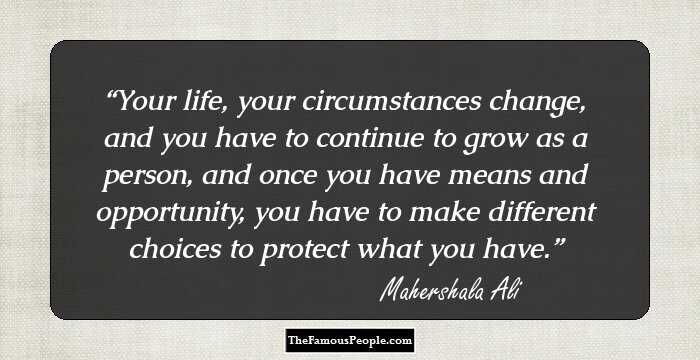
Your life, your circumstances change, and you have to continue to grow as a person, and once you have means and opportunity, you have to make different choices to protect what you have.
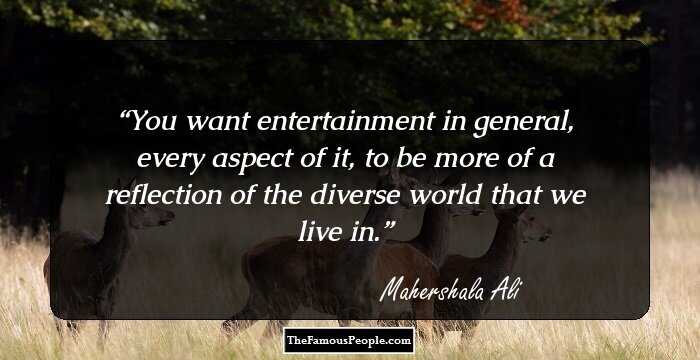
You want entertainment in general, every aspect of it, to be more of a reflection of the diverse world that we live in.
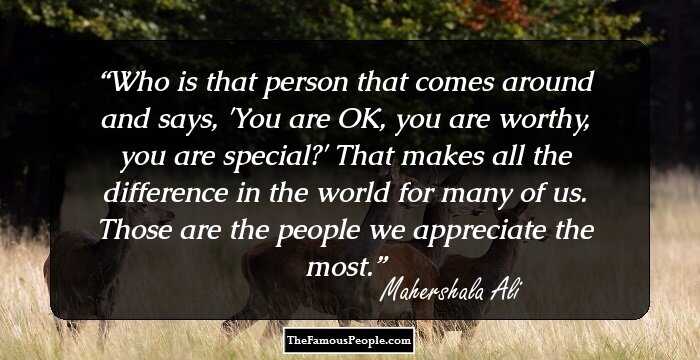
Who is that person that comes around and says, 'You are OK, you are worthy, you are special?' That makes all the difference in the world for many of us. Those are the people we appreciate the most.
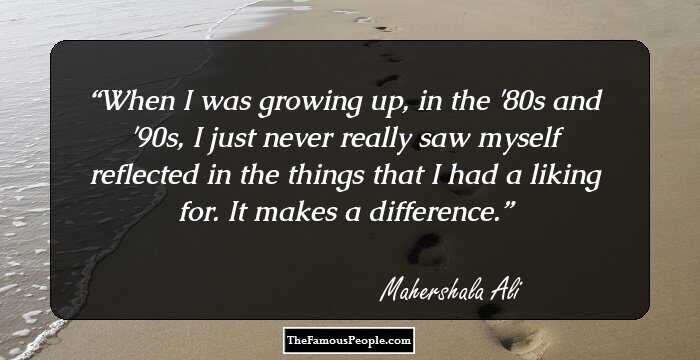
When I was growing up, in the '80s and '90s, I just never really saw myself reflected in the things that I had a liking for. It makes a difference.
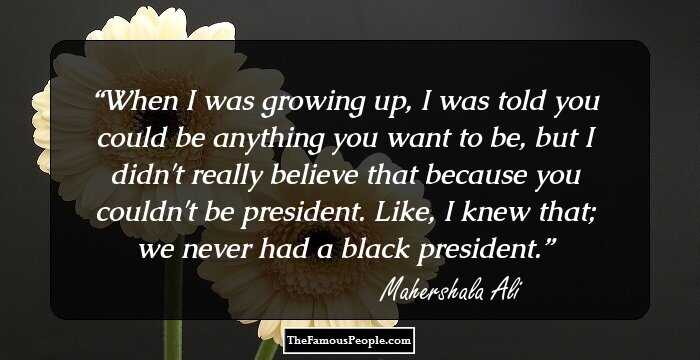
When I was growing up, I was told you could be anything you want to be, but I didn't really believe that because you couldn't be president. Like, I knew that; we never had a black president.
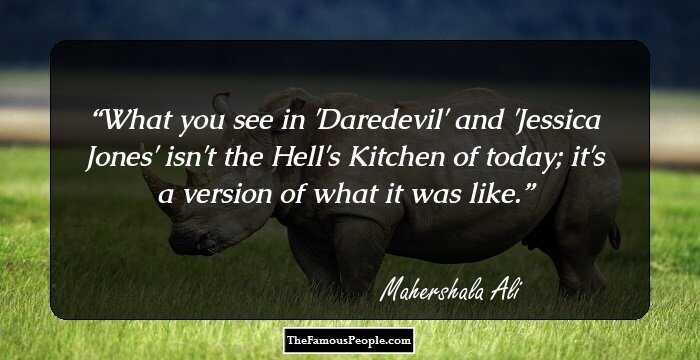
What you see in 'Daredevil' and 'Jessica Jones' isn't the Hell's Kitchen of today; it's a version of what it was like.
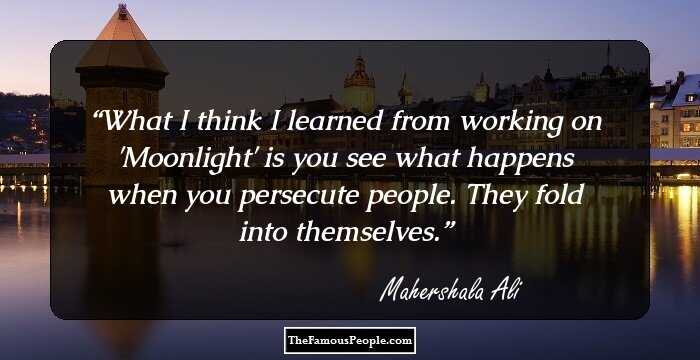
What I think I learned from working on 'Moonlight' is you see what happens when you persecute people. They fold into themselves.
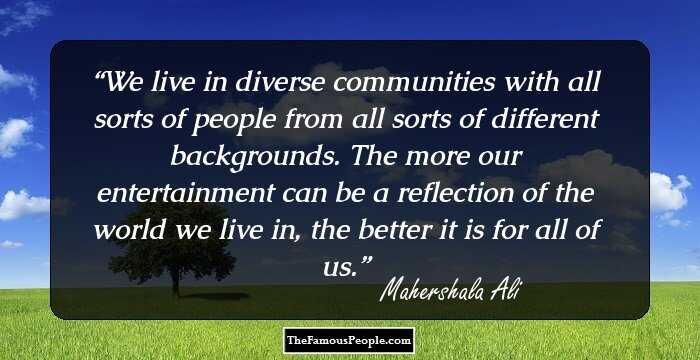
We live in diverse communities with all sorts of people from all sorts of different backgrounds. The more our entertainment can be a reflection of the world we live in, the better it is for all of us.
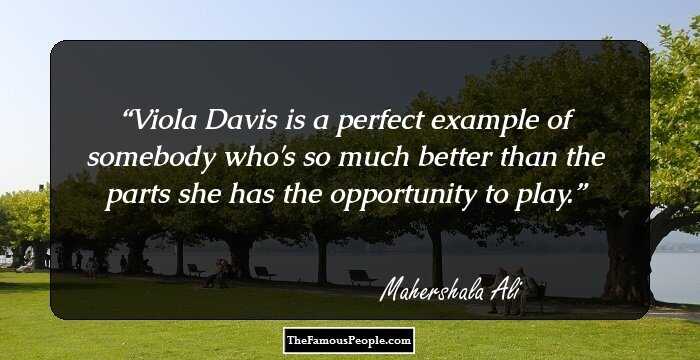
Viola Davis is a perfect example of somebody who's so much better than the parts she has the opportunity to play.
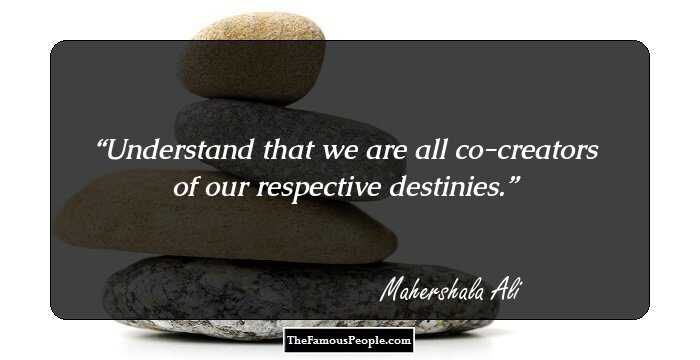
Understand that we are all co-creators of our respective destinies.
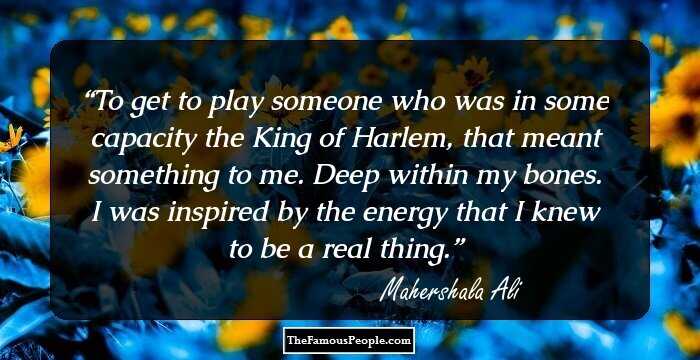
To get to play someone who was in some capacity the King of Harlem, that meant something to me. Deep within my bones. I was inspired by the energy that I knew to be a real thing.
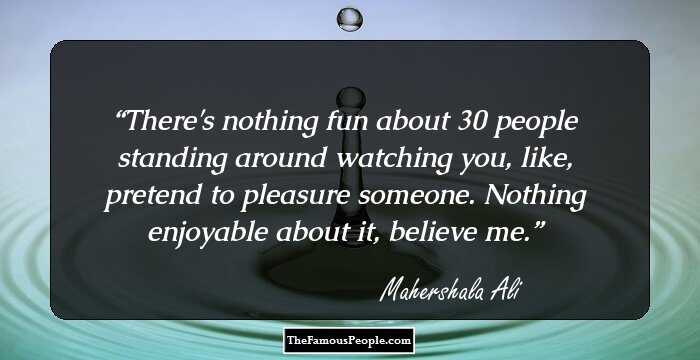
There's nothing fun about 30 people standing around watching you, like, pretend to pleasure someone. Nothing enjoyable about it, believe me.
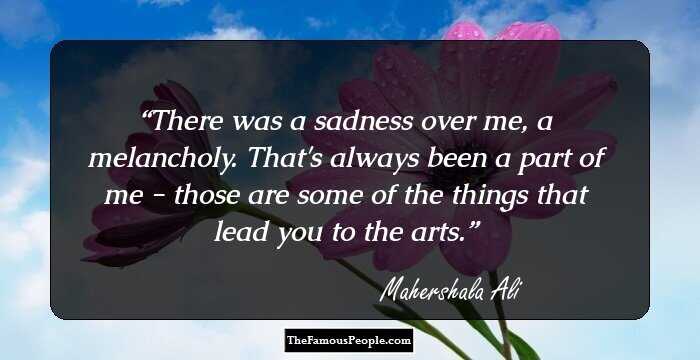
There was a sadness over me, a melancholy. That's always been a part of me - those are some of the things that lead you to the arts.
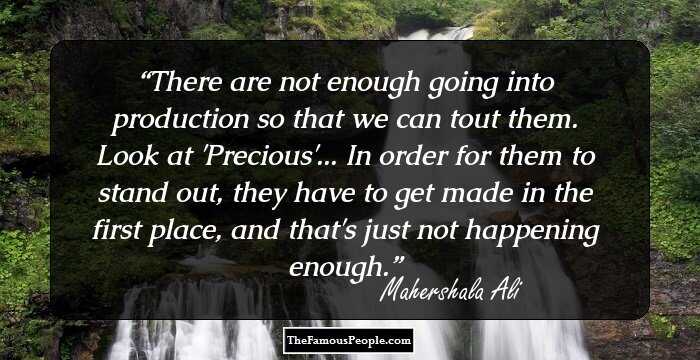
There are not enough going into production so that we can tout them. Look at 'Precious'... In order for them to stand out, they have to get made in the first place, and that's just not happening enough.
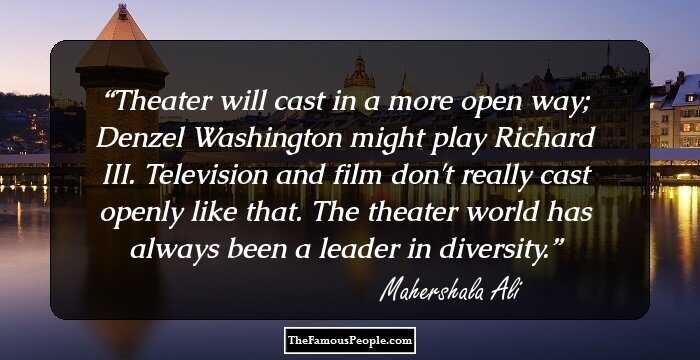
Theater will cast in a more open way; Denzel Washington might play Richard III. Television and film don't really cast openly like that. The theater world has always been a leader in diversity.
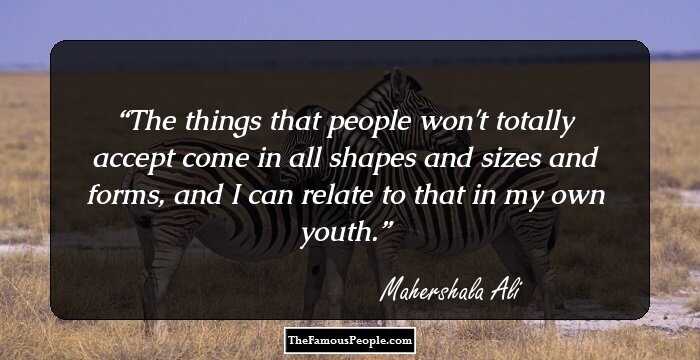
The things that people won't totally accept come in all shapes and sizes and forms, and I can relate to that in my own youth.
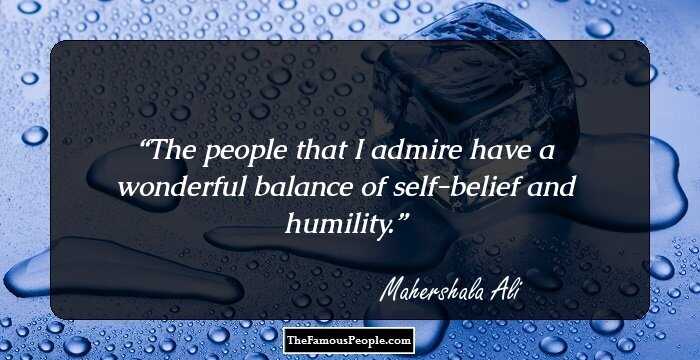
The people that I admire have a wonderful balance of self-belief and humility.
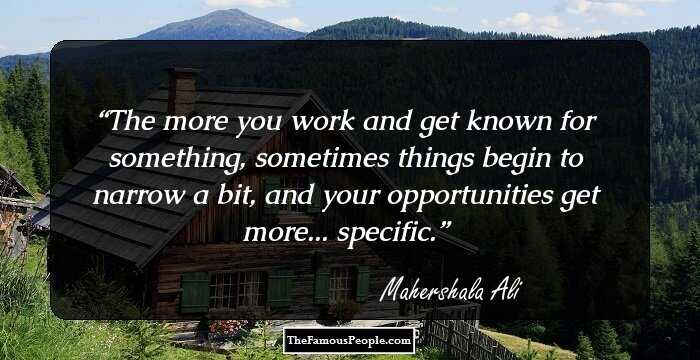
The more you work and get known for something, sometimes things begin to narrow a bit, and your opportunities get more... specific.
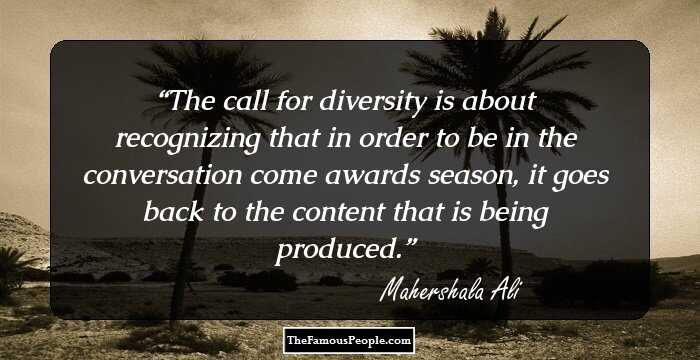
The call for diversity is about recognizing that in order to be in the conversation come awards season, it goes back to the content that is being produced.
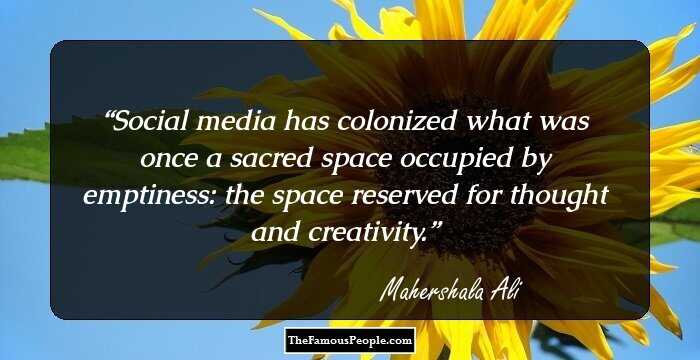
Social media has colonized what was once a sacred space occupied by emptiness: the space reserved for thought and creativity.
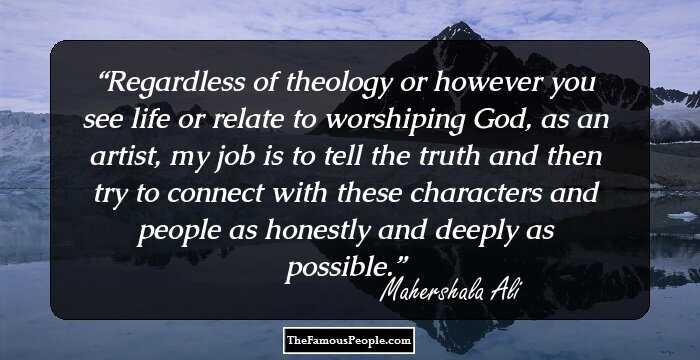
Regardless of theology or however you see life or relate to worshiping God, as an artist, my job is to tell the truth and then try to connect with these characters and people as honestly and deeply as possible.
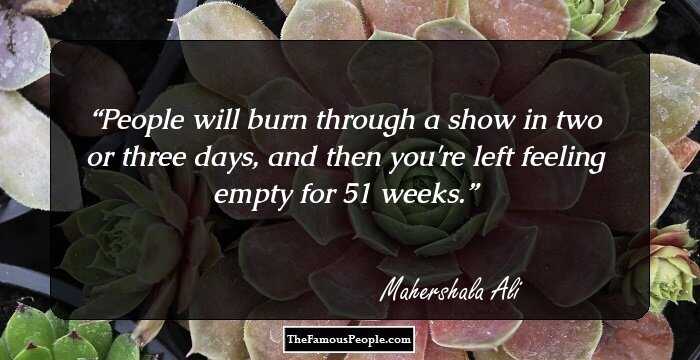
People will burn through a show in two or three days, and then you're left feeling empty for 51 weeks.
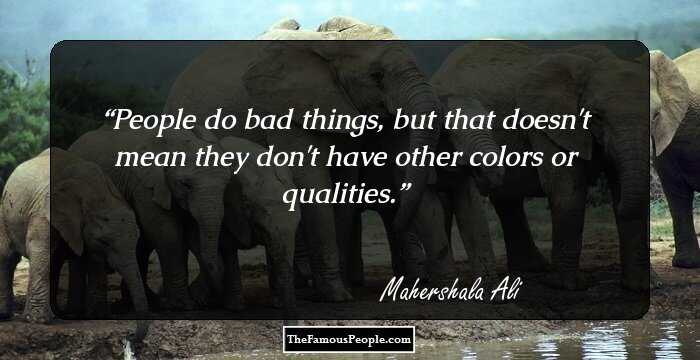
People do bad things, but that doesn't mean they don't have other colors or qualities.
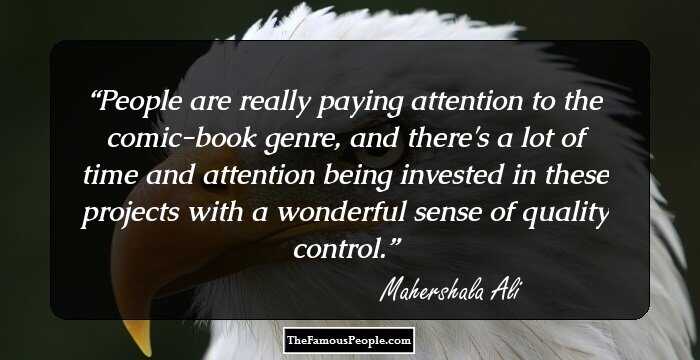
People are really paying attention to the comic-book genre, and there's a lot of time and attention being invested in these projects with a wonderful sense of quality control.
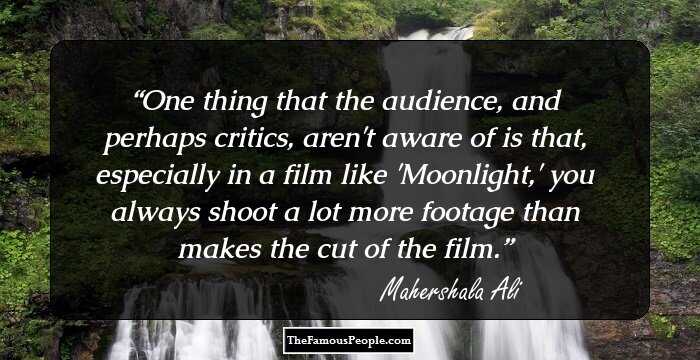
One thing that the audience, and perhaps critics, aren't aware of is that, especially in a film like 'Moonlight,' you always shoot a lot more footage than makes the cut of the film.
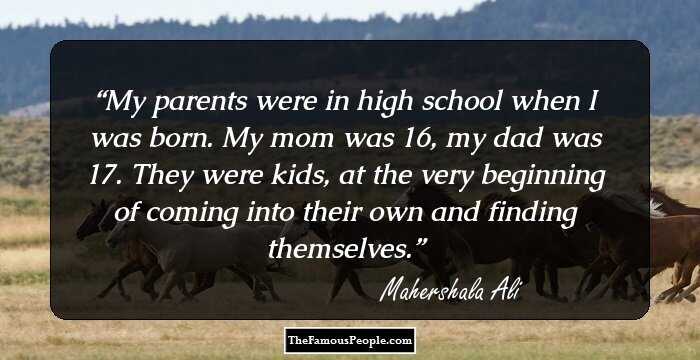
My parents were in high school when I was born. My mom was 16, my dad was 17. They were kids, at the very beginning of coming into their own and finding themselves.
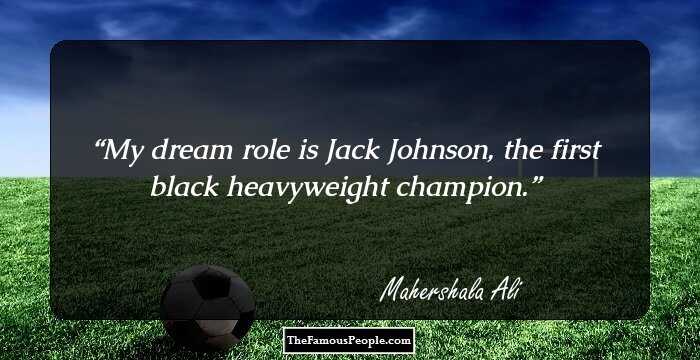
My dream role is Jack Johnson, the first black heavyweight champion.
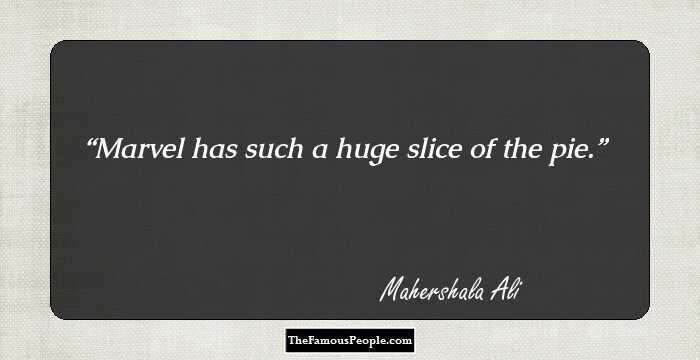
Marvel has such a huge slice of the pie.
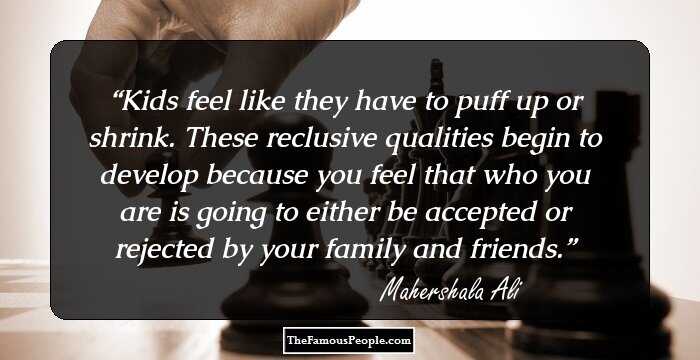
Kids feel like they have to puff up or shrink. These reclusive qualities begin to develop because you feel that who you are is going to either be accepted or rejected by your family and friends.
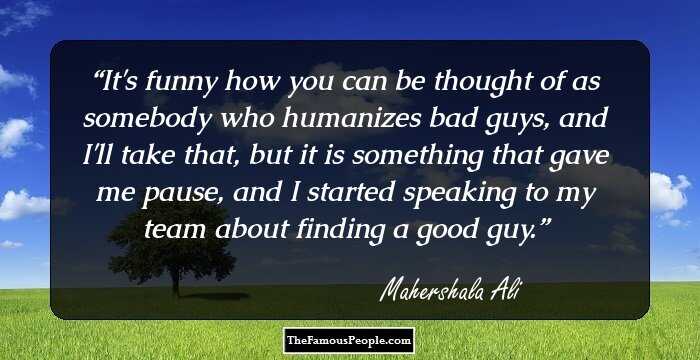
It's funny how you can be thought of as somebody who humanizes bad guys, and I'll take that, but it is something that gave me pause, and I started speaking to my team about finding a good guy.










